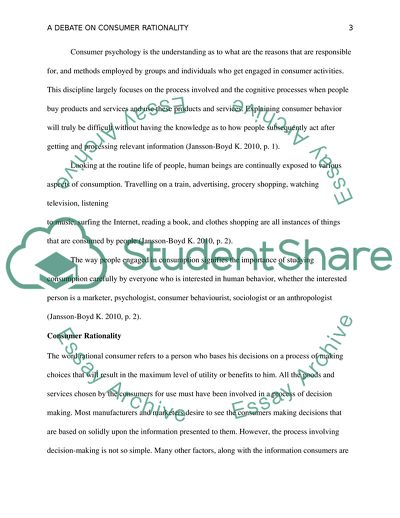Cite this document
(A Debate on Consumer Rationality Essay Example | Topics and Well Written Essays - 1500 words, n.d.)
A Debate on Consumer Rationality Essay Example | Topics and Well Written Essays - 1500 words. https://studentshare.org/psychology/1830306-are-consumers-always-rational
A Debate on Consumer Rationality Essay Example | Topics and Well Written Essays - 1500 words. https://studentshare.org/psychology/1830306-are-consumers-always-rational
(A Debate on Consumer Rationality Essay Example | Topics and Well Written Essays - 1500 Words)
A Debate on Consumer Rationality Essay Example | Topics and Well Written Essays - 1500 Words. https://studentshare.org/psychology/1830306-are-consumers-always-rational.
A Debate on Consumer Rationality Essay Example | Topics and Well Written Essays - 1500 Words. https://studentshare.org/psychology/1830306-are-consumers-always-rational.
“A Debate on Consumer Rationality Essay Example | Topics and Well Written Essays - 1500 Words”. https://studentshare.org/psychology/1830306-are-consumers-always-rational.


